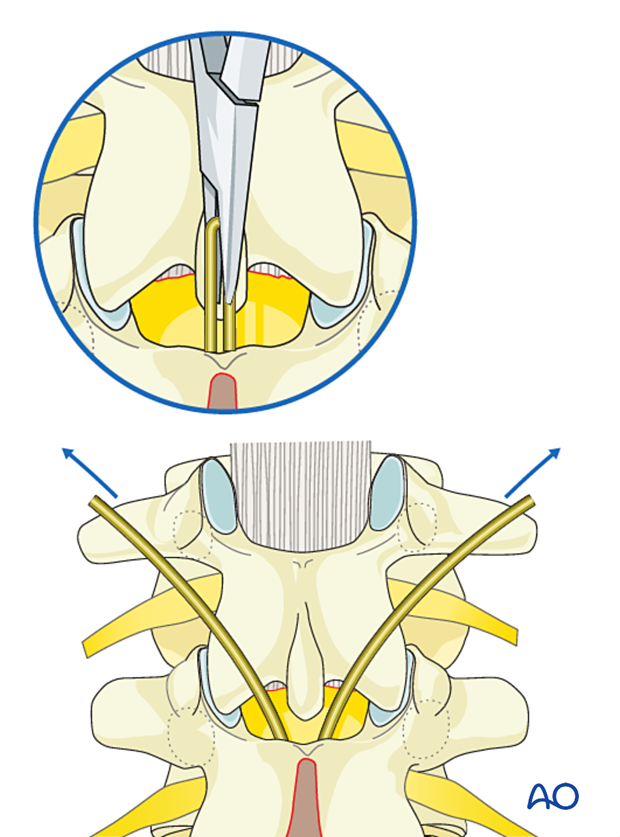Sublaminar wire insertion for management of adolescent idiopathic scoliosis
1. Preparation
The spinous process is removed using a rongeur.
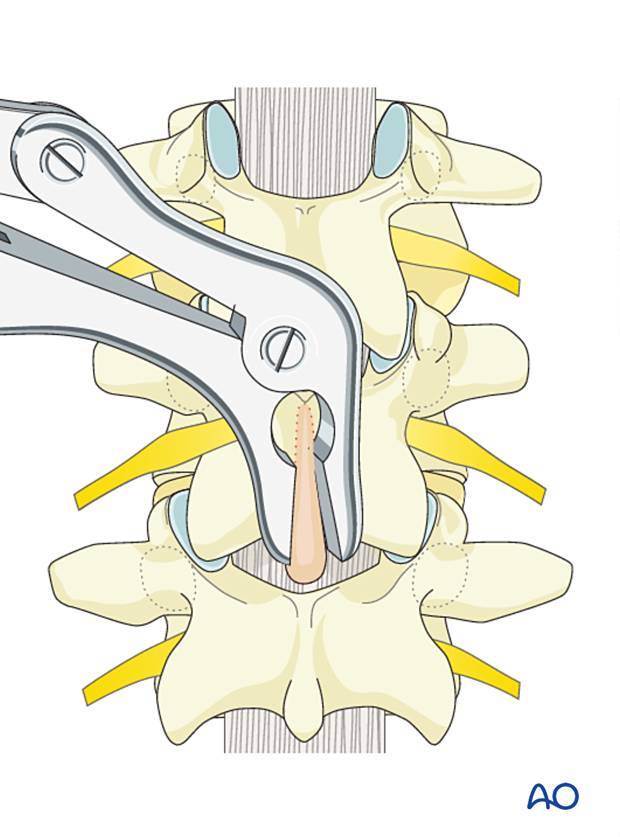
The ligamentum flavum are removed cranial and caudal to the lamina where the wire is to be passed.
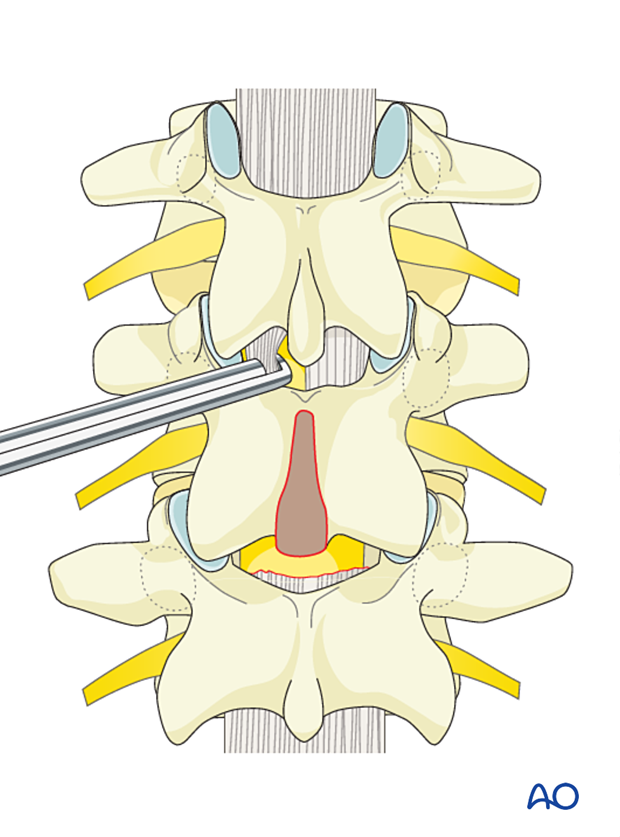
2. Wire bending
A doubled-up sublaminar wire is bent into a hook shape, wide enough to accommodate the lamina.
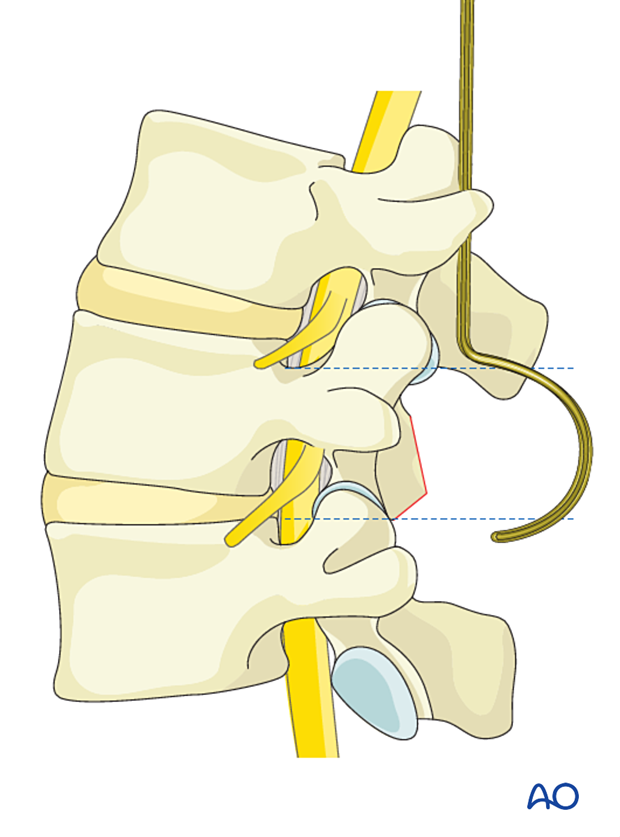
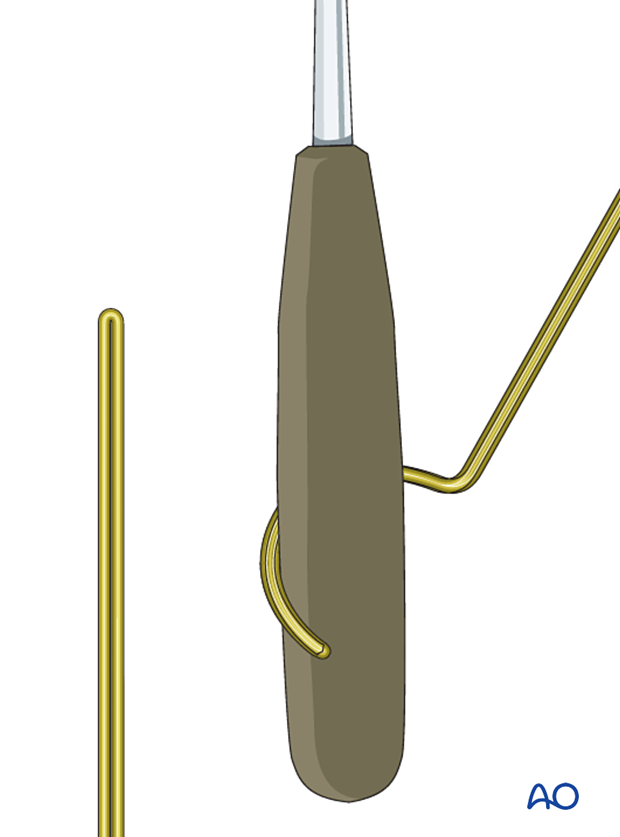
3. Wire passing
Pass the pre-bent wire carefully under the inferior laminar surface within the spinal canal in the midline from caudal to cranial in a smooth manner with the wire tip hugging the undersurface of the lamina throughout the insertion.
In case resistance is encountered, it may be that the tip of the wire is catching the stump of the ligamentum flavum. The wire should be withdrawn and reshaped before a new attempt is made.
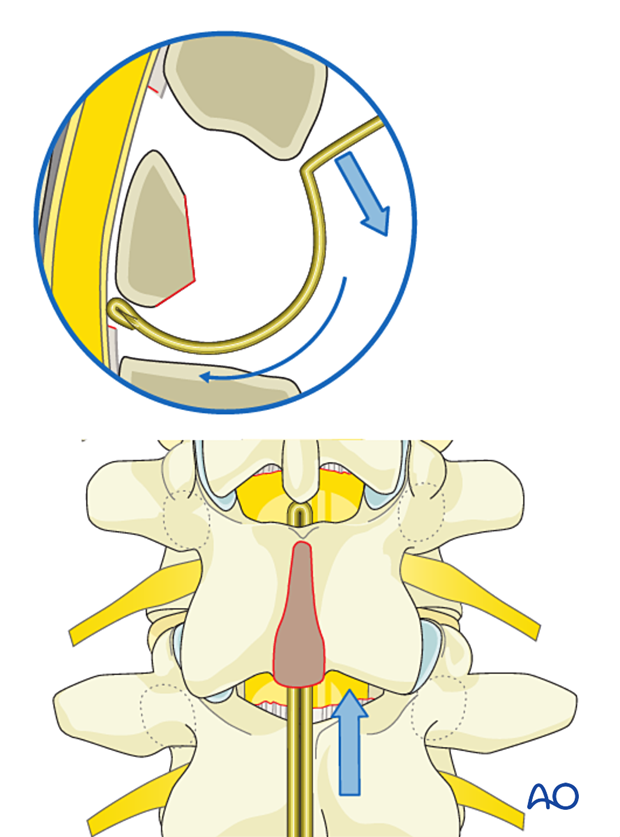
Once the tip of the wire can be seen at the cranial end of the lamina, a small hook or forceps is used to pull the leading edge of the wire through while carefully pushing the caudal end of the wire.
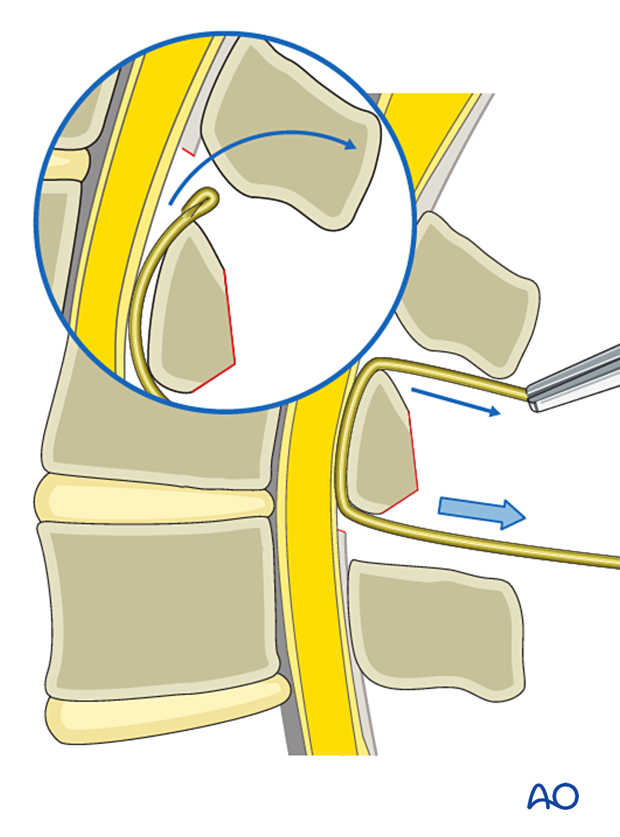
The tip of the wire is cut, and the two strands of the wires are directed to opposite directions of the midline lamina to allow attachment to the left and the right rod respectively. It is essential to firmly maintain the wire against the superior laminar surface to avoid ventral encroachment of the dural sac by the intraspinal portion of the wire.
This procedure is repeated for each of the segments within the intended fusion.
